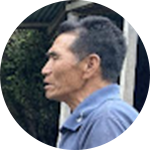Government School
Transformation Program (GSTP)
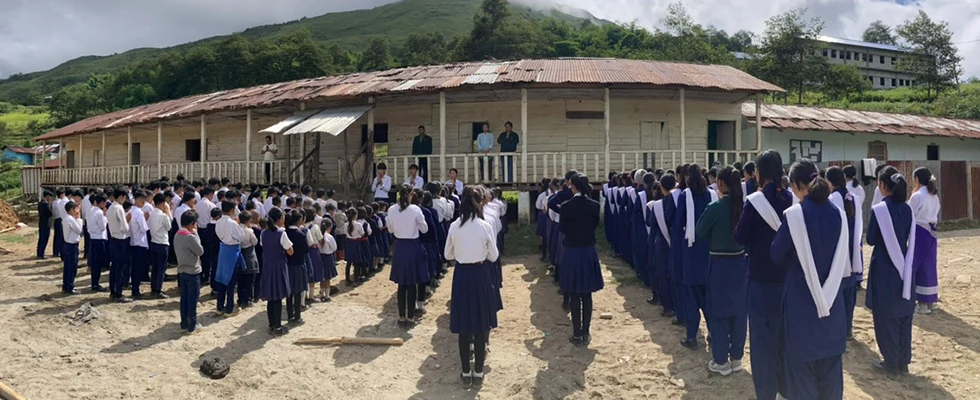
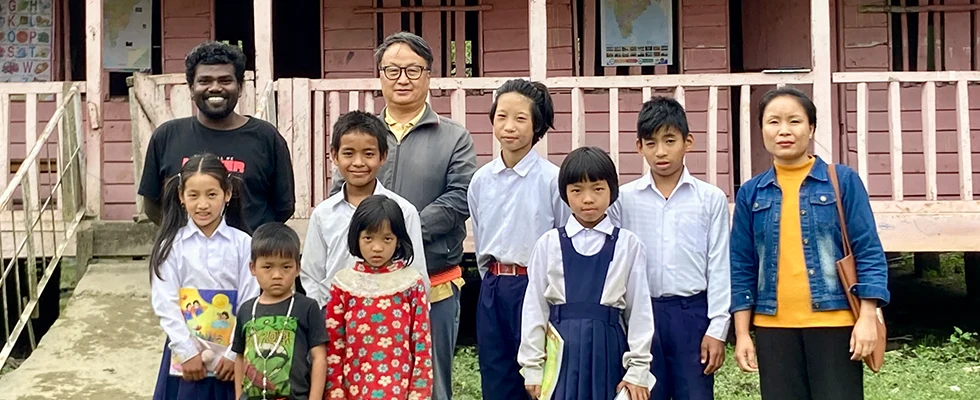
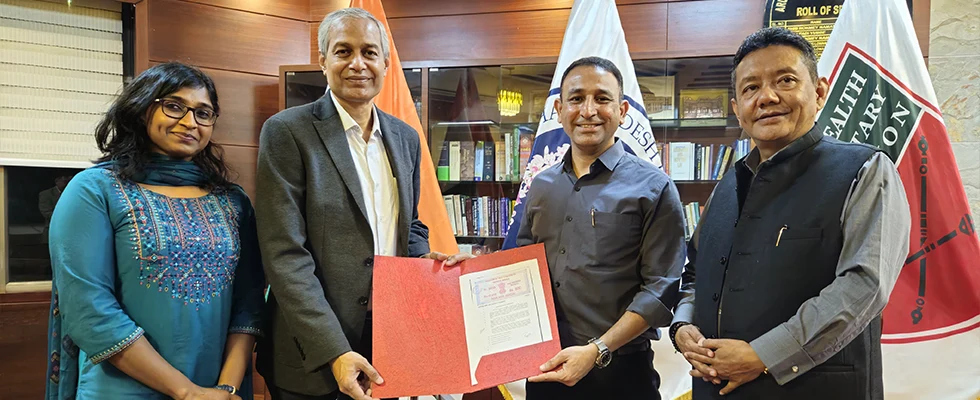
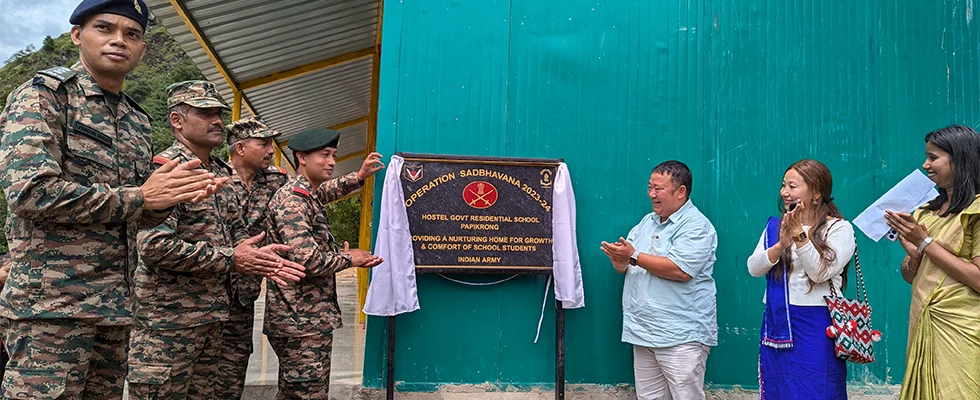
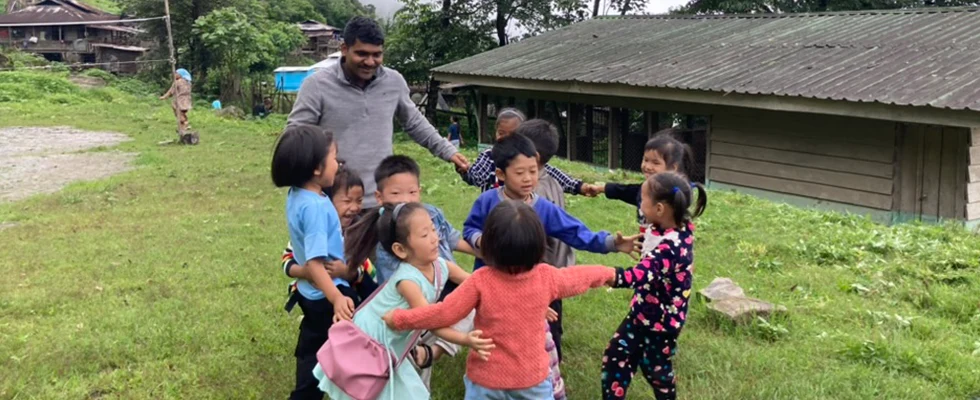
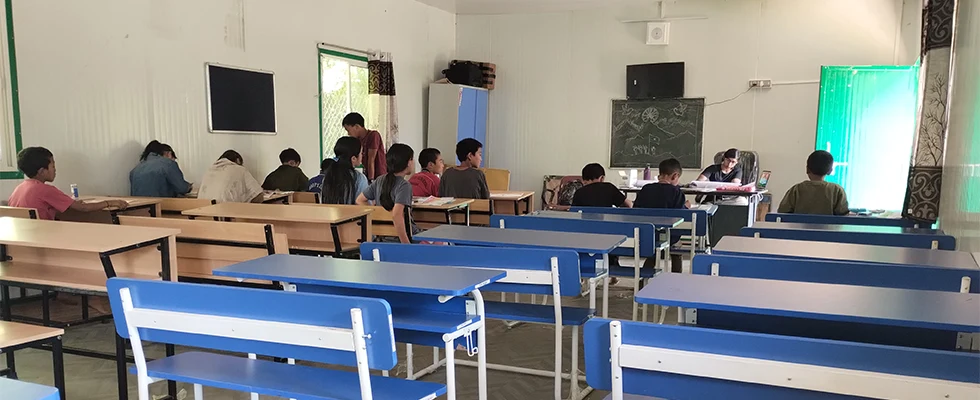
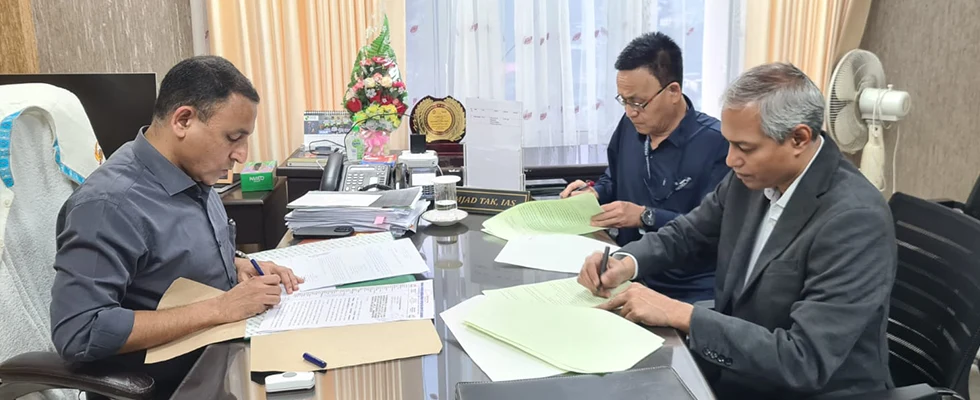
Overview of the Program
Though coined as the land of the dawn-lit mountains—with its gushing waterfalls, mighty mountains and ferocious rivers— among the seven sister states, Arunachal Pradesh has the lowest literacy rate (at 65.4%). Disturbingly, a 2021-2022 UDISE+ report highlights Arunachal Pradesh as having the highest dropout rates in the country, with a more significant impact on girls. While private schools are emerging, government schools still cater to a substantial portion of students. According to the ASER 2022 data, government school enrolment has risen from 65.6% in 2018 to 72.9% in 2022. However, the quality of education remains a concern. For instance, the percentage of children in Std III, both in government and private schools, who can read at Std II level, has declined from 18.7% in 2018 to 10.8% in 2022. While there has been a slight improvement in reading ability in Std V, the overall picture remains bleak. Another significant assessment tool is the Performance Grading Index (PGI), which evaluates the quality of school education systems across states and union territories. In the 2020-21 PGI, Arunachal Pradesh received a Level-7 grade, the lowest among all states. The state scored 104 out of 180 points in learning outcomes and quality, 125 out of 150 in infrastructure and facilities, 202 out of 230 in equity, 59 out of 80 in access to education, and 179 out of 360 in governance processes.
Owing to many years of being cut off from the mainland development, Arunachal Pradesh, like many of the state’s neighbours, suffers from lack of good quality education. The public education system falls short of most indicators when compared to national averages. One of 26 districts in the state and also one of the remotest, Shi-Yomi relies heavily on public education. This district has been left behind in development opportunities due to economic impoverishment, lack of infrastructure, employment, and basic network and electricity connectivity. Established as a district in 2018, Shi-Yomi is home to multiple tribes—Bokar, Libo, Ramo, Tagin and Memba—communities which have been historically marginalised and left behind with minimal development and opportunities.
The region experiences youth migration to the nearby large cities in search of opportunities, leading to emptying out of the border villages. For this and more reasons, there is a need for investing in education in this region.
The Problem
The findings from the last two years and a half years in Papikrung and a needs analysis assessment done across a representative sample of 11 schools in November 2023 in the district highlighted the urgent need for interventions in the education ecosystem in the region, including support from NGOs and CSR projects. While the rest of the country’s schools are advancing towards 21st century education with AI-powered tools, schools in Shi-Yomi district lack basic network connectivity and reliable electricity, relying on solar or hydel power beyond the closest town of Aalo.
In 82% of schools studied, there were inadequate classrooms and toilets, and outdated structures. There is a lack of activities to improve students’ social and interpersonal skills. School leaders lack the capacity and motivation to implement change. The region suffers from a shortage of teachers, and the lack of teacher quarters leads to irregular attendance. Staff has not received professional development, revealing a need for capacity building for both teachers and school heads to meet curricular expectations and learning goals.
Scope
Amid the myriad challenges, the region however has great potential for improving the education landscape in the district—the children are enthusiastic about learning, the community welcomes new ideas and people from different backgrounds. and values education and works towards finding culturally relevant solutions.
Additionally, there is presence of Army in the district. The 5 Mountain Brigade at Aalo has provided significant assistance to Sunbird in running the pilot in Papikrung. The Army’s infrastructure and transportation support has been instrumental in the school’s operation, and the newly posted Commander is interested in further collaborations if more schools are brought under Sunbird’s purview. The Army has approved two more projects for construction in Papikrung, including a classroom block and hostel, and has already helped construct a staff quarters-turned hostel and in levelling the land for a school playground. Being one of the most remote districts, there is also that much more scope for improvement of education and impact amplification in the region, by leveraging the support of the Army and the Community.The pilot project begun in Papikrung last year serves as a good model which can be emulated in the other schools in the district as well.
This Government School Transformation Program, based on the pilot and the needs analysis assessment, is now being implemented in 10 other schools.
Government School Transformation Program
Program Goal: To Transform under-resourced and under-performing Government Schools in the remote Shi-Yomi district of Arunachal Pradesh into Schools of Excellence.
This Programme will focus on comprehensive intervention in the schools with a 360 degree strategy addressing the following:
- Infrastructural development and improvement to create a conducive & safe learning environment
- Capacity building of the local teachers to bring pedagogical excellence,
- Driving School leadership and SMCs towards self-reliance and accountability
- Enhancing Student Leadership and School Ecosystem towards improved school performance
- Leveraging multiple stakeholders—the Govt., Army and Sunbird Trust is being implemented under the Government School Transformation Program.
Our program’s Theory of Change is grounded in years of dedicated work in Northeast India. Upon success of the pilot project in Papikrung, the district administration invited Sunbird Trust to conduct a needs analysis assessment of a representative sample of 11 schools in the district. This was done towards the district administration’s request to take up more schools in the region. The learning from the pilot project in the govt. school in Papikrung and the findings from the needs analysis assessment drive the design of this district transformation program which will be run in all the govt. schools in the district under Sunbird’s purview. Our longstanding experience has yielded compelling evidence that investing in govt. schools in Shi-Yomi district holds potential for educational transformation, facilitating access to quality education for children residing in underserved areas of the Northeast. In March 2024, Sunbird Trust signed an MoU with the Govt. of Arunachal Pradesh to take up 10 more schools under its intervention.
The pivotal element of this investment lies in strengthening school leadership and increasing pedagogical proficiency of the teachers. Cultivating exemplary school leadership and pedagogical practices, while also fostering student leadership, stands as an integral component of this program. This facet plays a crucial role in enabling sustainability in schools. The fundamental concept behind this initiative is to enhance the collective capabilities of key stakeholders, thereby guaranteeing the preservation of the knowledge and skills essential for sustaining and upholding educational quality over the long term.
Our comprehensive approach also prioritises the establishment of high-quality infrastructure as a foundational element. Inadequate infrastructure has a detrimental impact on the quality of education within these schools. Issues such as substandard sanitation facilities and restrooms contribute to an unhealthy environment, while poorly maintained or loosely constructed classrooms fail to provide an optimal learning atmosphere.
Additionally, the absence of laboratories and libraries restricts learning to the confines of the traditional classroom, thus significantly limiting exposure to and opportunities for experiential learning.
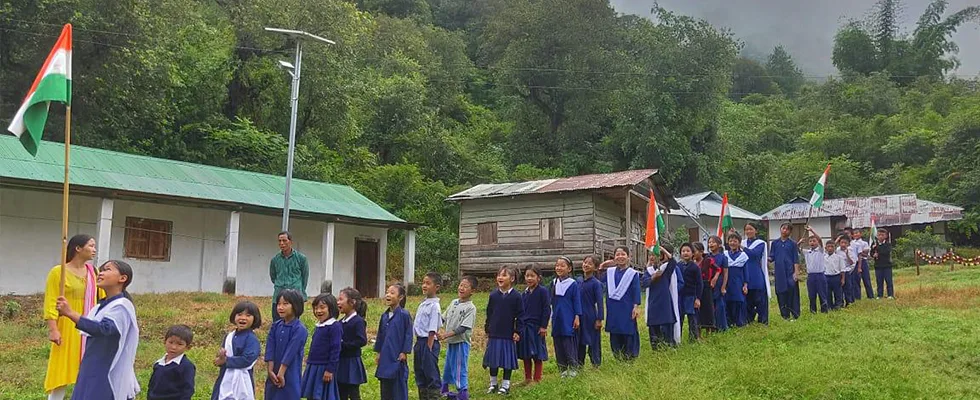
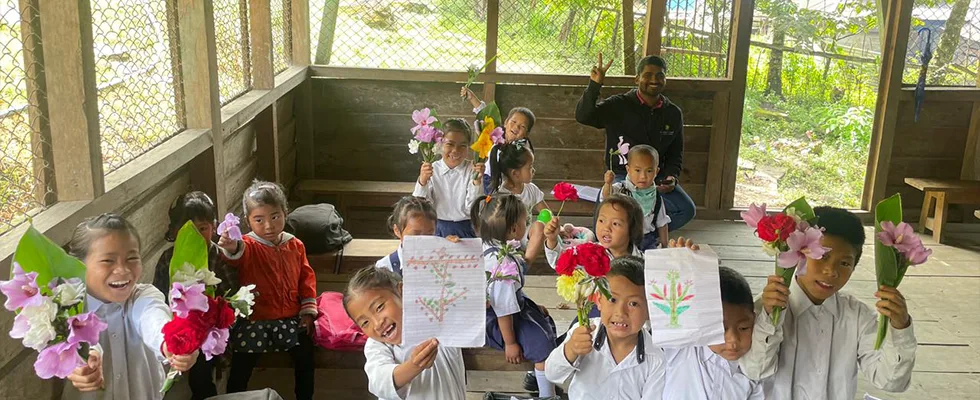
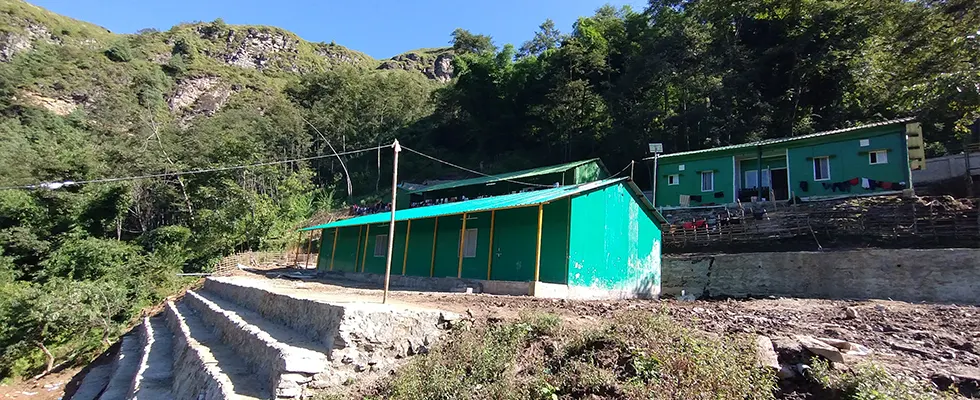
Government School Transformation Program
The insufficient infrastructure within these schools has a detrimental impact on the quality of education they can offer. Challenges such as subpar sanitation facilities and inadequate water contribute to an unhealthy learning environment. Moreover, poorly maintained or inadequately constructed classrooms fail to create an optimal atmosphere for effective teaching and learning. Additionally, the absence of essential resources like laboratories and libraries confines learning to the traditional classroom setting, significantly limiting students’ exposure to experiential learning opportunities.
However, it’s essential to recognize that these schools often lack the financial resources required to undertake substantial infrastructure projects independently. To address this critical issue and enable these schools to provide state-of-the-art infrastructure facilities for their students, Sunbird Trust envisions a proactive role, working in tandem with the Govt. and the Army. By funding basic infrastructure improvements, it aims to enhance the physical and emotional well-being of students in the short term. Ultimately, this will translate into improved student learning outcomes in the long term, fostering a more conducive and enriching educational environment.
Assumptions: An underlying assumption in this endeavour is that the newly improved infrastructure will be utilised for its intended purpose with effectiveness and efficiency.
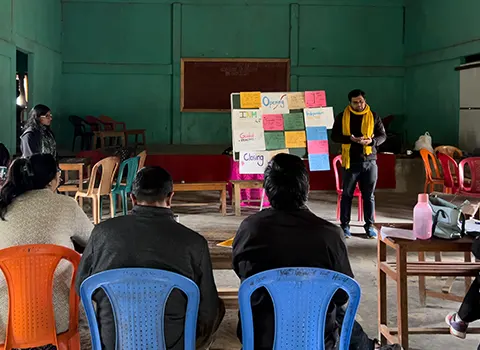
Cultivating Exemplary School Leadership and Pedagogical Practices
The struggle to achieve long-term success that under-resourced affordable private schools in the region face, can be attributed to the fact that the calibre of school leadership has not kept pace with contemporary demands and remains entrenched in traditional methodologies. Hence, it becomes essential to enhance the skills and knowledge of school leaders to ensure that schools align their strategies with modern requirements in areas such as curriculum development, administration, stakeholder engagement, pedagogical approaches, and student development.
Furthermore, it is equally crucial to upgrade teachers with contemporary pedagogical practices. Unfortunately, the necessary support systems for teachers and school leaders to acquire, collaborate on, and innovate with these skills are lacking. Sunbird Trust, with its expertise in teacher training and capacity-building for school leaders, aims to fill this critical void by establishing the much-needed support systems and structures.
The training will be delivered through modular programs designed to cultivate a heightened awareness of modern educational and leadership practices in the short term. This, in turn, will have a positive impact on the quality of school leadership and pedagogy in the medium term. Ultimately, the improved quality of pedagogy will lead to enhanced student learning outcomes, while elevated school leadership quality will significantly contribute to overall school performance in the long term.
Leveraging the existing structures in the Education Department, liasing with the pedagogy experts, Sunbird aims to streamline the data collection, management and training process in order to amplify the impact and reduce duplication of effort.
Assumptions:
It is assumed that school leaders and teachers will demonstrate a strong willingness to adopt significant changes in their approaches and practices. They will be motivated to invest both time and effort into upskilling themselves to adapt to modern educational requirements.
Another major assumption is that school leaders and teachers, after acquiring new skills and knowledge, will effectively implement these into their school environments. They will be able to apply their newly acquired expertise in a manner that aligns with the expectations and needs of all stakeholders.
Furthermore, it is assumed that all relevant stakeholders, including teachers, students, parents, and the broader community, will be supportive of the changes introduced by school leaders. They will be open to embracing modern educational practices and will perceive these changes as beneficial to the overall learning experience.
Impact
Direct beneficiaries – GSTP
462
Students
42
Teachers
Direct beneficiaries – Livelihood and Community interventions
100
Households Across
4
Villages
Indirect beneficiaries
1100
Households Across
15
Villages
(needs to be verified by GB – this is fro census 2011 data)
Voices of Gratitude
